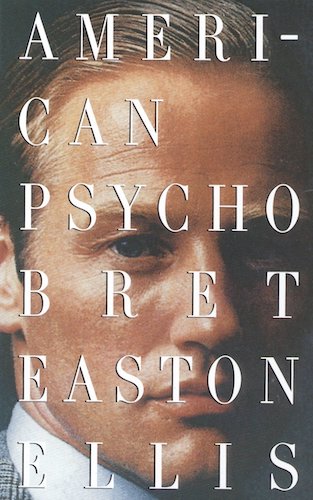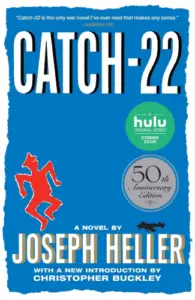American Psycho
Book Author: Bret Easton Ellis
Summary reviewed by:
Terrence Timmons
Terrence Timmons
Analyst
Bachelor of Arts (BA), University Of California, Santa Barbara 2019
With over 4 years of experience as an analyst. Terrence Timmons is committed to analyzing summaries without compromising on quality.
American Psycho: Summary
Think you've seen the darkest corners of Wall Street? "American Psycho" thrusts you into the heart of 1980s Manhattan, where the elite flaunt wealth in a city pulsing with ambition and excess. The story follows Patrick Bateman, a young, charismatic investment banker whose life is a parade of designer suits, exclusive clubs, and high-stakes deals. On the surface, Bateman embodies success, but beneath the veneer lies a disquieting emptiness.
His days are consumed by a relentless pursuit of status, while his nights unravel into a haunting exploration of identity and morality. As the line between reality and illusion blurs, Bateman's inner world becomes a reflection of societal decay. Bret Easton Ellis crafts a gripping narrative that satirizes consumerism and the hollow pursuit of perfection. This standalone novel delves deep into the psyche of a man—and a culture—obsessed with appearances, leaving readers questioning the true cost of conformity.
Spoilers (watch a short ad to reveal spoilers)
American Psycho: Genres
Fiction
Psychological Fiction
Horror
Satire
Transgressive Fiction
American Psycho: Main Characters
Patrick Bateman: A wealthy and charismatic Wall Street investment banker who epitomizes the materialistic excess of the 1980s. Beneath his polished exterior lies a violent psychosis. His obsession with status and appearance is evident when he meticulously details his grooming routine and designer wardrobe.
Evelyn Richards: Bateman’s fiancée, who is equally consumed by social standing and material wealth. She organizes lavish dinners to maintain appearances, highlighting her value of societal approval over genuine connection.
Timothy Price: Bateman’s colleague and friend, preoccupied with wealth and prestige. He constantly boasts about exclusive reservations and high-end purchases, showcasing his deep-seated need for recognition.
Jean (“Jean”): Bateman’s secretary, who offers a stark contrast to his superficial world. She is sincere and compassionate, valuing genuine human connection, as seen when she expresses concern for Bateman’s well-being.
Luis Carruthers: A colleague infatuated with Bateman, representing unrequited affection. He values love and acceptance, misinterpreting Bateman’s aggression as a sign of mutual interest.
Paul Owen: A successful colleague whom Bateman envies for his superior business card and professional accomplishments. Owen embodies the competitive nature of their industry, becoming the target of Bateman’s deep-seated jealousy.
American Psycho: Themes
Materialism and Consumerism: The novel satirizes the excessive consumerism of the 1980s, highlighting characters who obsess over designer brands and status symbols. Bateman’s detailed descriptions of his possessions underscore this preoccupation.
Identity and Isolation: Bateman struggles with his sense of self, often feeling disconnected despite being surrounded by people. His inability to form genuine relationships underscores his profound isolation.
Violence and Dehumanization: Graphic violence reflects Bateman’s detachment from humanity, viewing others as objects rather than individuals. His brutal actions illustrate the extreme consequences of dehumanization.
Superficiality and Appearance vs. Reality: Characters place immense value on outward appearances, masking inner emptiness. Bateman’s charming facade hides his murderous impulses, showcasing the disparity between seeming and being.
Critique of Capitalism: The story critiques the greed-driven culture of Wall Street, where profit eclipses ethics. Bateman’s ruthless behavior mirrors the cutthroat nature of unbridled capitalism.
Moral Void and Apathy: A pervasive lack of empathy characterizes the social environment, with characters indifferent to suffering. Bateman’s confessions go unnoticed, emphasizing societal apathy.
Duality of Human Nature: Bateman embodies the conflict between civilized behavior and primal instincts. His oscillation between polished professionalism and savage violence highlights this duality.
Media Influence and Pop Culture Obsession: Characters are heavily influenced by media and popular culture, often engaging in superficial discussions about music and celebrities, indicating a society driven by external validation.
American Psycho: What You Need to Know
(Contains Spoilers: Perfect for readers seeking a quick review.)
"American Psycho" follows Patrick Bateman, a young and affluent investment banker navigating the elite circles of 1980s Manhattan. By day, he is the embodiment of Wall Street success—meticulously groomed, fashion-forward, and socially connected. His life is a relentless pursuit of status, marked by expensive dinners, exclusive nightclubs, and an obsession with material possessions.
As the narrative unfolds, Bateman reveals a sinister side. Behind his polished exterior lies a violent psychopath who commits gruesome murders. His victims range from homeless individuals to colleagues, reflecting his deep-seated contempt and detachment from humanity. A pivotal moment occurs when Bateman murders Paul Owen, a colleague whose success and superior business card ignite Bateman's envy. After killing Owen, Bateman attempts to cover his tracks by faking Owen's presence, which only adds to his psychological unraveling.
Bateman's grip on reality becomes increasingly tenuous. His violent acts escalate in brutality, and his narratives blur the lines between reality and hallucination. He describes heinous crimes with a disturbing nonchalance, highlighting his profound moral decay. Despite the severity of his actions, those around him remain oblivious, often mistaking him for others due to their shallow interactions and self-absorption.
In a moment of desperation, Bateman leaves a detailed confession on his lawyer's voicemail, listing his numerous crimes. However, when he confronts his lawyer in person, the confession is dismissed as a joke. The lawyer insists that Paul Owen is alive, claiming to have had lunch with him recently. This denial plunges Bateman into confusion, leaving him—and the reader—uncertain about the reality of his experiences.
The story concludes without resolution, as Bateman returns to his routine of superficial engagements and material pursuits. His final reflection acknowledges a perpetual state of emptiness, with "no catharsis" and "no new knowledge gained." The ambiguity of the ending raises questions about whether his violent actions were real or figments of his fractured psyche.
Key plot points to remember include:
Bateman's Dual Identity: His outward success masks a hidden life of violence, illustrating the extreme disconnect between appearance and reality.
Murder of Paul Owen: Bateman's envy leads to Owen's murder, a significant event that propels his psychological decline and challenges his ability to maintain his facade.
Escalating Violence: The progression of Bateman's crimes signifies his losing battle with sanity, blurring the lines between his delusions and the real world.
Failed Confession: His unacknowledged confession highlights the apathy and moral blindness of those around him, reinforcing the novel's critique of superficial society.
Ambiguous Reality: The uncertainty surrounding the truth of Bateman's actions leaves readers questioning the nature of his reality and the extent of his madness.
Understanding these elements is crucial to grasping the novel's exploration of identity, morality, and the dehumanizing effects of a society obsessed with wealth and appearances. "American Psycho" offers a haunting commentary on the emptiness of modern life, challenging readers to reflect on the values that define success and the human cost of rampant consumerism.
American Psycho: Methodology
In developing this summary, we delved deeply into "American Psycho’s" exploration of materialism and identity, ensuring each key theme is accurately represented. Our expert analysis highlights Patrick Bateman's profound isolation and the novel’s critique of consumer-driven society. By synthesizing the narrative’s pivotal moments and underlying messages, we present a clear and faithful representation of Ellis's work. Upholding the highest standards of accuracy and clarity, this summary serves as a reliable reflection of the novel’s dark examination of modern excess and moral ambiguity.


American Psycho
Date Published: March 6, 1991
Disclaimer: As an Amazon Associate I earn from qualifying purchases.




